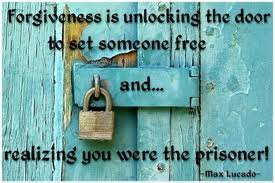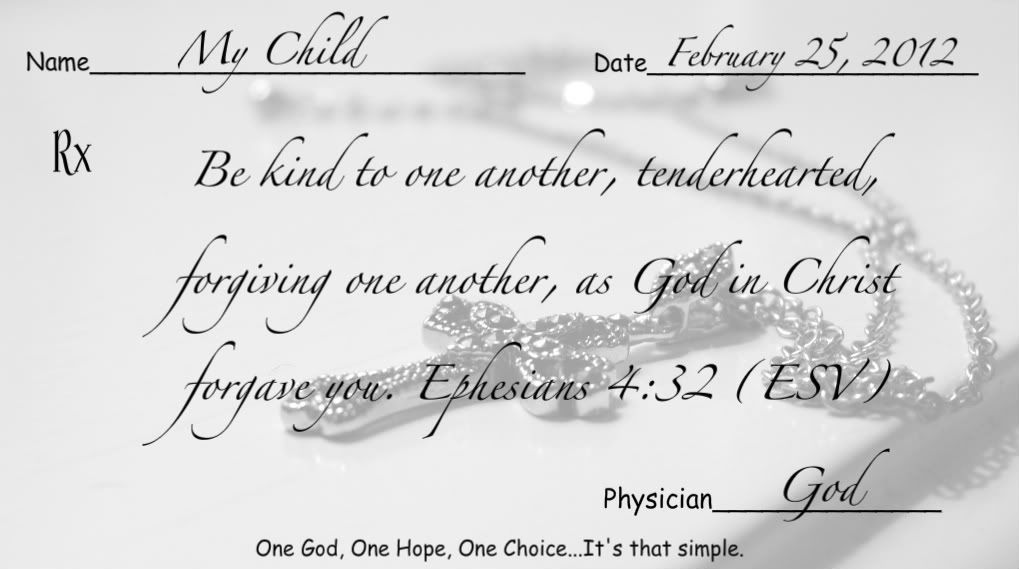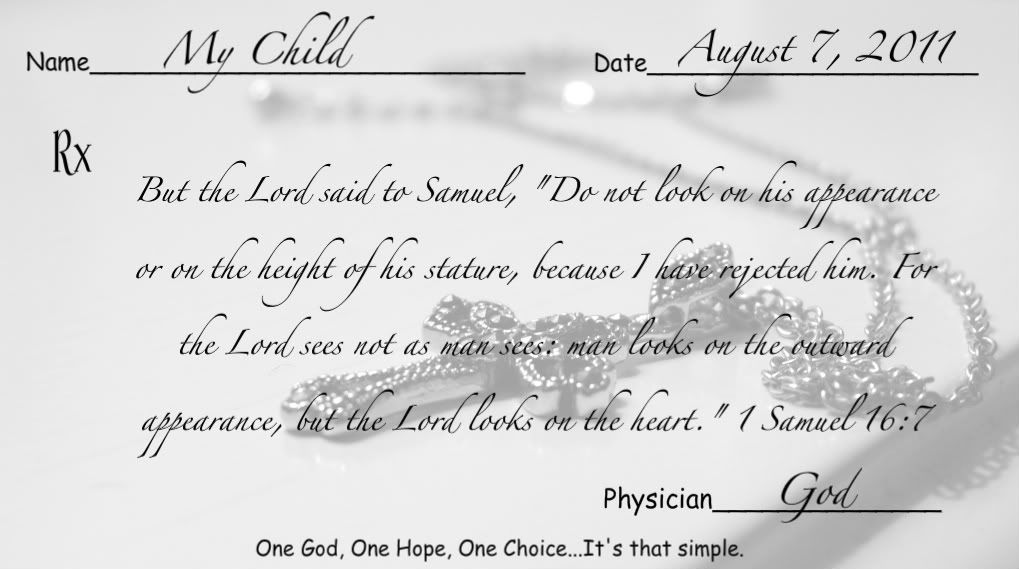I promise I haven’t abandoned you. I’ve just come to the realization that writing regularly on a blog and writing a book while having a job and the responsibility of a family is just about impossible for me. But in teaching the 10th grade girls small group at church, we are doing a series called “Letting it Go” about the importance of forgiveness. So I’m sharing the information with you that we are studying on Sunday nights. This is a great resource geared specifically for parents… for teaching your children about forgiveness, and possibly learning a bit yourself.
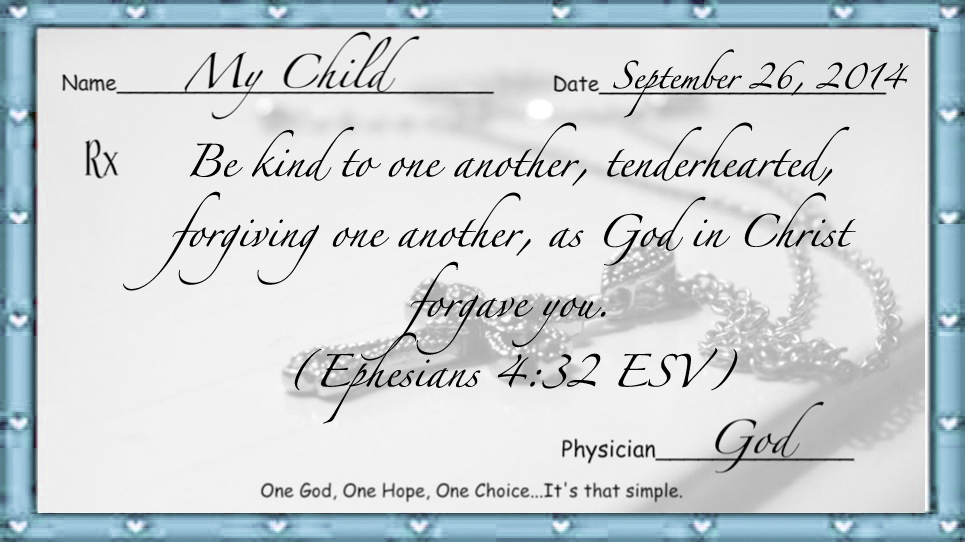
1. Be a Student of What They are Learning
“I just can’t let it go.” “They don’t deserve to be forgiven.” “It hurts too much to move on.” Maybe you’ve heard your children say something like this in the midst of pain, frustration and anger towards someone who has hurt them—or maybe you’ve said or thought something similar yourself. Choosing to forgive someone who has hurt us is never easy. So why does it matter so much that we do it? How do we know when we should do it? And how do we know we have actually healed from the pain an offense has caused? How do we simply let it go?

2. Be a Student of Your Student
I can think of multiple times in my life when I’ve been in an emotional stand off with someone over something they did or said—or maybe something they didn’t say or didn’t do. Taking the first steps towards getting back on good terms is simple enough—in theory. But saying the words “I’m sorry” often feels like it costs too much. So, too often we choose silence in the hopes that time will fix it, instead of intentional reconciliation.
Unfortunately, not apologizing can be costly—maybe even especially to the relationship with our teenagers. Maybe sometimes you don’t want to apologize because you know that they are the one who did something wrong. Maybe in reaction to something your son did, you lashed out and said something that was a little harsh—but you excused it because his behavior was completely unacceptable. Or maybe you found yourself sneaking through bedroom drawers just to squelch some rising suspicions and it really broke your daughter’s trust—but you were justified in what you did, so an apology seems unnecessary. You didn’t do anything outside of your parental rights, per se, but your son or daughter feels hurt, betrayed or angry.
Saying I’m sorry can be so hard. Admitting you’re wrong, or that you even had a small part in an argument or bad situation, can physically hurt sometimes. It doesn’t sit well. On the other hand, when someone has apologized to you, or you have made the first step towards reconciliation, something distinct and compelling happens. There is a sense of relief, of vulnerability and calm. All from simply saying—or hearing—“I’m sorry.”
What is it about an apology that can be so powerful—both for the receiver of the apology and the one actually apologizing?
To understand this a bit more, we want to share some excerpts from an article entitled “The Power of Apology: How to give and receive an apology. And it’s worth it, on both ends” by Beverly Engel featured in Psychology Today in June 2013, and taken from the book The Power of Apology by Beverly Engel: (To read the full article, go to http://www.psychologytoday.com/articles/200208/the-power-apology.)
As you read, try to focus on the bolded words—on what giving an apology does—and try to imagine these action words taking place in the context of your relationship with your son or daughter:
“Apology has the ability to disarm others of their anger and to prevent further misunderstandings. While an apology cannot undo harmful past actions, if done sincerely and effectively, it can undo the negative effects of those actions … Apologizing helps us remain emotionally connected to our friends and loved ones….
So, the next time you find yourself in a stand off with your spouse, a co-worker a friend or even your son or daughter, remember that more is on the line than just your pride and sense of justice. The future relationship, the ability to stay connected to and vulnerable with that person is on the line too. The words “I’m sorry” may be hard to say, but they are always worth the effort!
3. Action Point
The action point for this series is pretty straightforward: Apologize to your child.
But sometimes this is easier said than done. So what are some characteristics of a meaningful apology?
First of all, admit that you are truly sorry for the hurt or damage you caused. It’s easy with our students to unintentionally do or say something that they take personally. And even though we don’t always mean things the way they hear or experience them, the hurt that can be caused is still real to them. So, while you may not have meant to be hurtful, recognizing that someone else was hurt by your actions is incredibly important.
Secondly, a sincere and powerful apology includes an acceptance of responsibility. This may seem like the same thing as admitting you are sorry for the hurt you caused. But it actually takes this idea of admittance one step further. When you accept responsibility, you are not making excuses for what you did, which often has the effect of negating the apology. It’s like when your child says, “I’m really sorry that I dented the car, but the other driver was way too close to me and I couldn’t see them well out of my side mirror.” Too many excuses cloud a good apology with a message of “It really wasn’t my fault.” For an apology to be meaningful and sincere, you have to communicate that you take full responsibility for your actions.
And lastly, there should always be something in your apology that shows you have a desire to remedy the situation. You obviously can’t go back and undo what was done—or not done—but you can offer a plan to make sure it doesn’t happen again. So, if you’ve missed your son’s basketball game … again … and he is really hurt and angry, make a plan and offer a promise to get to one of his upcoming games. And then do it! An empty promise will only make the hurt deeper, so don’t promise what you can’t deliver. But be sure to offer some sort of a plan of action so that your son or daughter knows that you will work towards not repeating the action that hurt them in the first place.
Take some time to think through what a meaningful apology might look like for your son or daughter. And then, go say the words that make all the difference in the world—I’m sorry.
Get connected to a wider community of parents at www.orangeparents.org.

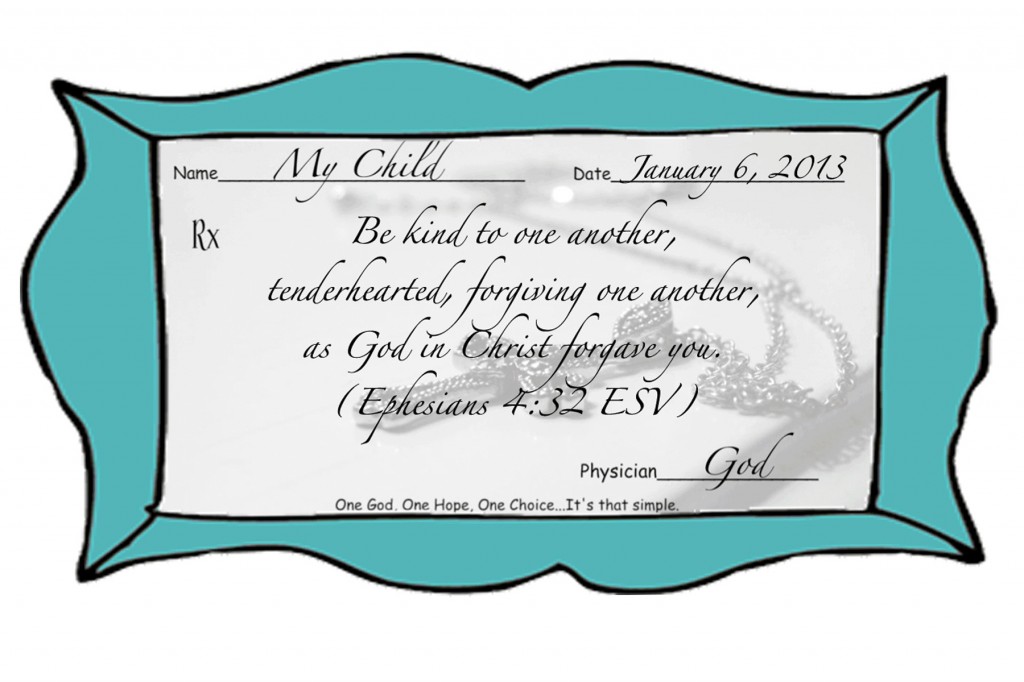

 ).
).
